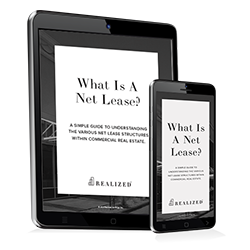How Interest Rate Changes Impact Triple Net Lease Investments

Before investing in triple net (NNN) leases and enjoying benefits like steady cash flow, it’s important for investors to take into consideration how broader market conditions affect these assets.
The History and Evolution of Triple Net Leases in Commercial Real Estate

Triple net (NNN) leases are a popular investment choice today, with many leveraging these assets as cornerstones of their portfolios. Before they became the contemporary strategy for long-term investment that they’re now known for, however, NNN leases had to undergo an evolution that shaped them into the tools they are.
Combining DSTs and Triple Net Leases: Strategies for Tax Deferral

A triple-net (NNN) lease investment offers numerous benefits, including hands-off involvement and steady income, making it a popular choice for many modern investors. The most direct way to access this investment is through direct ownership; however, did you know that other methods offer additional benefits?
Triple Net Lease vs. Ground Lease: Pros and Cons for Investors

Real estate investors often leverage structured lease agreements to ensure steady income and long-term investment success. While many lease variations exist, there are two that share similarities: the triple net lease and the ground lease. Both provide benefits such as predictable cash flow and hands-off involvement, but each one has its own pros and cons that can complicate the selection process.
Navigating Lease Terminations and Extensions in Triple Net Leases

Many investors gravitate towards triple net, or NNN, leases because of the stable cash flow and hands-off involvement in daily operations. These benefits are often long-term, especially since NNN leases last a decade or more. What happens, then, when the lease is either terminated or extended? These moments, when the tenant chooses to either leave or stay, play a significant role in cash flow, property value, and long-term investment strategy.
Portfolio Diversification Using Triple Net Lease Investments

Diversification is one of the most powerful strategies you can implement as an investor. Exposure to diverse industries and geographic locations helps increase cash flow and serves as a buffer when one sector experiences unfavorable economic conditions. Triple net or NNN lease properties are one type of investment that can help enhance diversification, especially for savvy investors who understand the right approaches to NNN assets.






